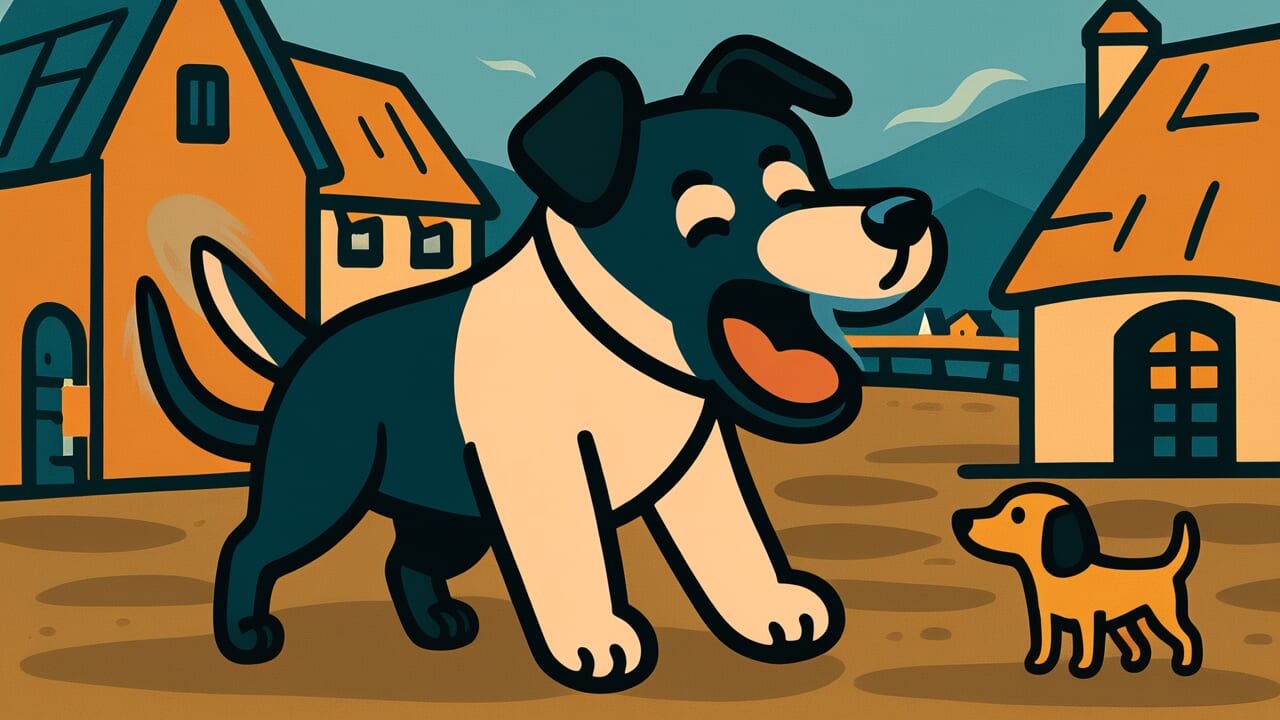How to Read “Dogs in small villages bite people”
Komura no inu wa hito wo kamu
Meaning of “Dogs in small villages bite people”
“Dogs in small villages bite people” is a proverb that uses the observation of village dogs biting people to describe a human tendency. It shows how people living in narrow societies often become rough-tempered.
When you spend a long time in a limited environment or closed relationships, your perspective narrows. You become more likely to attack different opinions or new ways of thinking.
In small communities, people with the same values tend to stick together. There’s little stimulation from outside, so they lose flexibility.
This proverb is used to explain situations where exclusive atmospheres develop. This happens in workplaces with fixed relationships or organizations with the same members.
When people don’t know the wider world and have few chances to encounter diverse values, they lose tolerance. They conflict over trivial matters and can’t accept newcomers.
The proverb cleverly expresses this human tendency by comparing it to dog behavior.
Origin and Etymology
No clear written records remain about the origin of this proverb. However, we can make interesting observations from how the phrase is constructed.
Let’s focus on the word “small village.” In small villages, visitors from outside are rare. Dogs aren’t used to seeing unfamiliar people.
City dogs meet many people daily, so they become tolerant of humans. But dogs in small villages only interact with limited people. They were thought to be more vigilant and aggressive.
Our ancestors realized this observation could apply to human society too. People raised in narrow societies live within limited values. They become more aggressive toward different ideas or new things.
Meanwhile, people who interact with diverse individuals in wider society tend to have tolerant and flexible hearts. This human observation is embedded in these words.
Before the Edo period, Japan’s basic unit was the village community. Within this social structure, people clearly distinguished between inside and outside the village. Closed relationships formed easily.
This proverb is a crystallization of sharp human observation born from such social environments.
Usage Examples
- That department hasn’t changed members in years, so dogs in small villages bite people—that’s why new people don’t stay
- If you only stick with the same group, dogs in small villages bite people, so it’s better to interact with outsiders sometimes
Universal Wisdom
The proverb “Dogs in small villages bite people” shows deep insight. It reveals the essential defensive instinct humans possess and how environment influences personality.
Everyone feels secure in familiar environments. But when that security lasts too long, it transforms into closed-mindedness.
Wariness of the unknown was originally an instinct necessary for survival. But by staying in a narrow world, that wariness becomes excessive. It transforms into aggression.
This is the nature of living creatures, whether dogs or humans.
Our ancestors saw through how lack of diversity roughens people’s hearts. Same faces, same values, same daily routine.
In such monotony, small differences look like major conflicts. Minor changes feel like threats.
Those who know the wider world have room to accept differences. Those who only know a narrow world try to exclude differences.
This proverb has been passed down because it perfectly captures a truth. Humans are creatures of environment. Depending on their situation, they can become tolerant or aggressive.
By changing environment, people can change. The proverb shows this hope at the same time.
When AI Hears This
Ecological research has made an interesting discovery. Animals living at boundaries between different environments become more vigilant and aggressive. This includes forest-grassland edges and river-land junctions.
This is called the edge effect. Boundary areas easily become invasion routes for predators, and resources are unstable.
This principle explains exactly why dogs in small villages bite often. City dogs see hundreds of strangers daily. They can’t waste energy reacting to each one, so they become desensitized to stimuli.
In small villages, only a few people pass by each day. The dog’s brain strengthens the recognition pattern: “Everyone except the usual five is an invader.”
Statistically speaking, in environments where unfamiliar people appear extremely rarely, the response intensity to such exceptional events skyrockets.
What’s more interesting is this principle applies directly to human society. Border towns tend to have stronger patriotism and exclusivity. Island communities become closed off.
All these phenomena share the same mechanism. Smaller groups develop clearer boundaries between “inside and outside.” Their defensive instincts sharpen.
When dogs or humans stand at ecological edges, the same biological program activates.
Lessons for Today
This proverb teaches modern people the importance of consciously expanding their world.
In modern society, we seem physically connected to a wide world. But social media algorithms and hobby specialization create danger. We risk shutting ourselves into “small village” communities.
We interact only with people who think the same way. We receive only the same information.
In such environments, your heart may unknowingly become narrow and aggressive.
What matters is regularly stepping outside your “village.” Talk with people from different industries. Try new hobbies. Visit places you’ve never been.
Such small adventures bring flexibility and tolerance to your heart.
It’s also important to reflect on whether your organizations or communities are becoming closed. Do you warmly welcome new members? Do you listen to different opinions?
If you feel suffocated, that might be a sign of “small village” transformation. By creating well-ventilated environments, both you and those around you can live more peacefully.



Comments